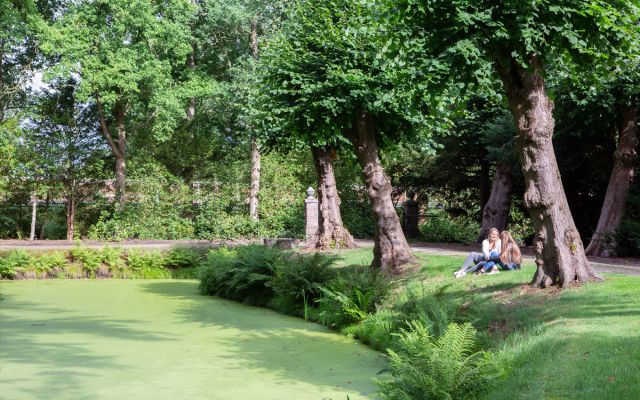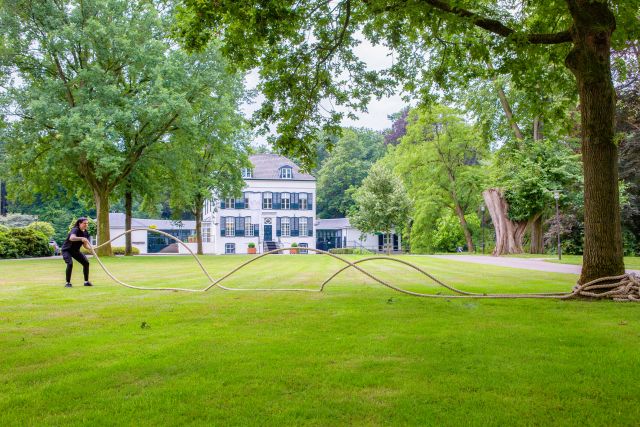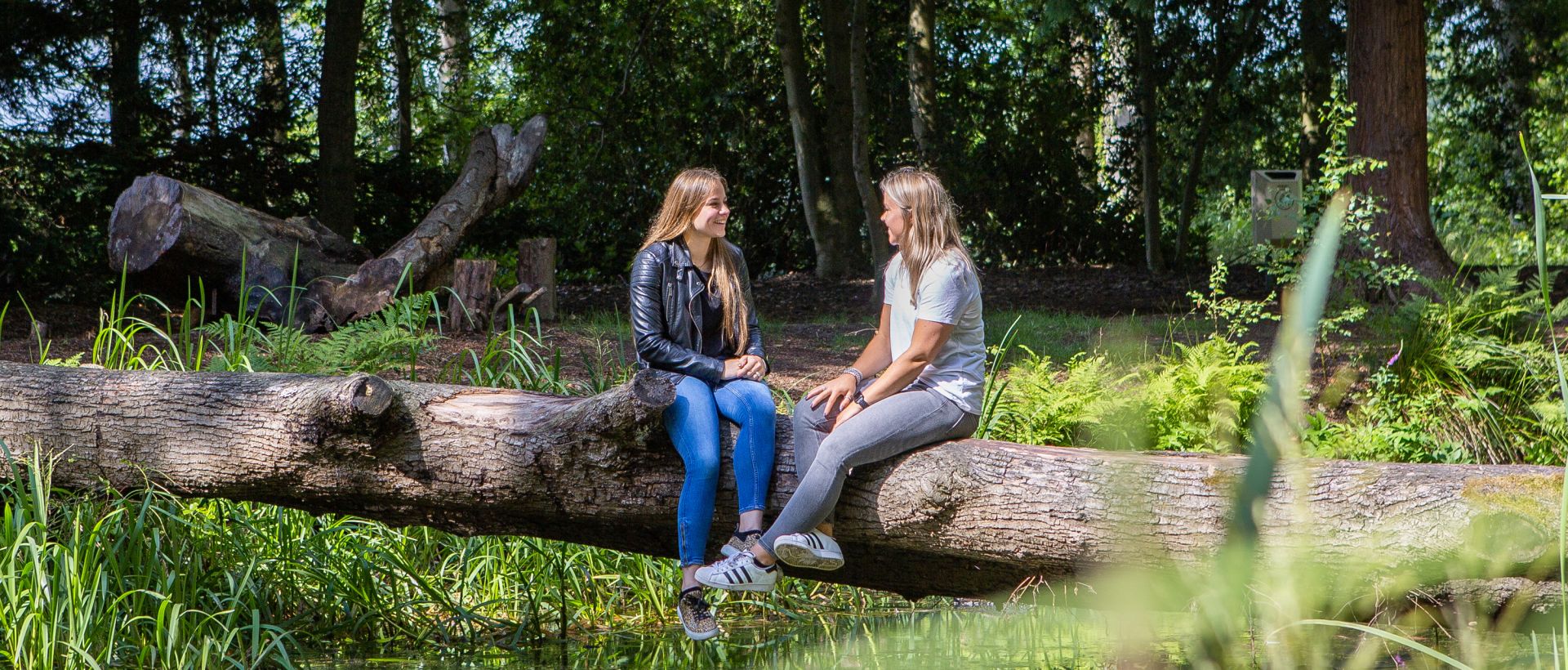What is ADD?
ADD stands for Attention Deficit Disorder. It is a mental disorder whereby a person is unable to concentrate or pay attention. People with ADD are unable to focus their attention on something for a long time, and they have difficulty concentrating. They also often have problems 'taking action'. For example, they find it difficult to absorb the specific information required to perform a task. In addition, they can quickly forget things and be chaotic and withdrawn.
Young people with ADD
Young people with ADD are often completely inundated with thoughts and impressions whirling around in their heads, and they usually tend to withdraw into their own world. They are frequently told that they are quiet, dreamy or 'passive'. It sometimes seems they do not want to carry out their tasks, but their inaction is often simply because they are incapable. They cannot do it, partly because of the enormous stream of thoughts in their head.
ADD has an enormous effect on the lives of children and young people. The most significant problems arise when they are confronted with task-oriented work at school, when doing homework at home, and when interacting with peers. If any additional issues arise, such as depression or addiction, then the young person could end up in a downward spiral.
We often see that young people with ADD try to calm their maelstrom of whirling thoughts and get some peace of mind by self-medicating, smoking cannabis or using other drugs. At Yes We Can Youth Clinics, we are available 24/7 to provide warm and professional guidance. Step by step, we guide and lead these young people towards a new, positive future. Our follow-up aftercare programme continues to help and guide these young people in their recovery and further development. For example, a central part of this programme focuses on helping these young people find a fulfilling way of life.

Characteristics and symptoms of ADD
The characteristics of ADD differ from person to person. Often, however, there are several common features, such as:
- an 'overfull head' (stream of thoughts constantly whirling around in one's head)
- losing attention quickly;
- difficulty in planning and completing tasks;
- difficult in taking action;
- withdrawn behaviour;
- social / communication issues (sometimes);
- slow learning pace.
These complaints cause problems in everyday life. For example, they find it challenging to keep up with school or to connect with classmates. This can cause them to develop a negative self-image. They can also suffer from mood swings, anxiety or sadness.
Treatment of ADD
At Yes We Can Youth Clinics, we help young people, whom we call 'fellows', to deal with their problems and become empowered to function well in society again. We do not look at the 'labels' they have received in the past but rather at their talents, qualities and possibilities.
Focused individual therapy
Each fellow at Yes We Can receives three weekly individual sessions with a licensed clinical psychologist who works closely with the entire multi-disciplinary team. Besides these weekly sessions, all our fellows have several appointments with our registered psychiatrists. These interactions are fundamental in assessing therapeutic advancement, tailoring treatment modalities, and delivering unwavering, specialised counsel.
Recognition through group sessions
An essential part of the treatment takes place in groups. During group sessions, the fellows set their personal goals under the supervision and guidance of expert-by-experience counsellors. They share personal experiences, help their peers recover and support each other. There is a lot of recognition during these sessions since the fellows and the counsellors have (had) similar problems. Each fellow receives a workbook on 'the steps of change', which makes the process transparent.
Integrating physical wellness into recovery
Recognising the vital role of physical well-being in mental recovery, we integrate daily sports and physical activities into our treatment plans. These activities support physical health and reinforce the therapeutic work in individual sessions, addressing underlying issues through a blend of cognitive and experiential therapies. This integrated approach ensures a holistic recovery path, focusing on mental and physical health.
Collaborating with families for comprehensive support
Understanding the critical role of family support in the recovery process, Yes We Can provide a dedicated program for parents and families, offering guidance and strategies to foster a nurturing environment. This program is designed to strengthen the support network essential for the fellow's continued progress and to prevent relapse, embodying our belief in a united approach to recovery. This collaboration between our team and families lays the foundation for a sustained journey towards healing.
Find out more about our unique treatment approach.

ADD and medication
Fellows may have already been on medication before coming to our clinic. For example, methylphenidate or dextroamphetamine may have been previously prescribed. However, we opt for treatment without medication at Yes We Can Youth Clinics. The idea behind this is that we want to treat 'the real fellow' instead of the fellow who is under the influence of drugs.
Responsible phasing out
We strive to reduce any medication the fellows are already on to zero or as little as possible during treatment. We want to focus on the "real" fellow instead of a young person under the influence of prescription drugs. We do this carefully and accurately, under the watchful eye of our psychiatrists. The combination of our safe treatment climate, the supportive community of fellows and the entire treatment team and medical team that are present 24/7 achieves amazing results. Even once the fellow has left the clinic and continues to work on recovery, medication is often hardly necessary anymore, if at all.
Contact us
Yes We Can Youth Clinics can effectively treat teenagers and young adults who are suffering from a wide variety of mental health issues. You can reach us by phone from Monday to Friday from 9:00 a.m. to 10:00 p.m. and on Saturday and Sunday from 10:00 a.m. to 4:00 p.m. (GMT +1) via phone number: +31 (0)85 02 01 222. Your call will be forwarded after business hours (weekdays after 6:00 p.m. and on weekends). Please note that answering your call during these hours might take longer than usual. If we cannot reply to the call right away, please leave a message, and we will call you back as soon as possible. You can also fill out our contact form.
Register for an intake interview
Would you like to register a teenager or young adult (aged 13-25) for treatment at Yes We Can Youth Clinics? Please fill in our intake form, and we will contact you to schedule a personal intake interview.
Intake form
